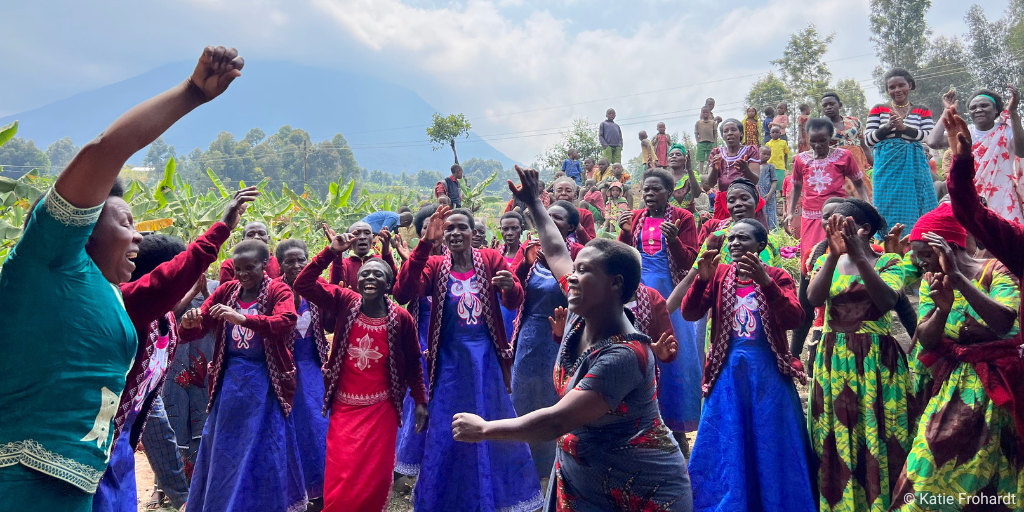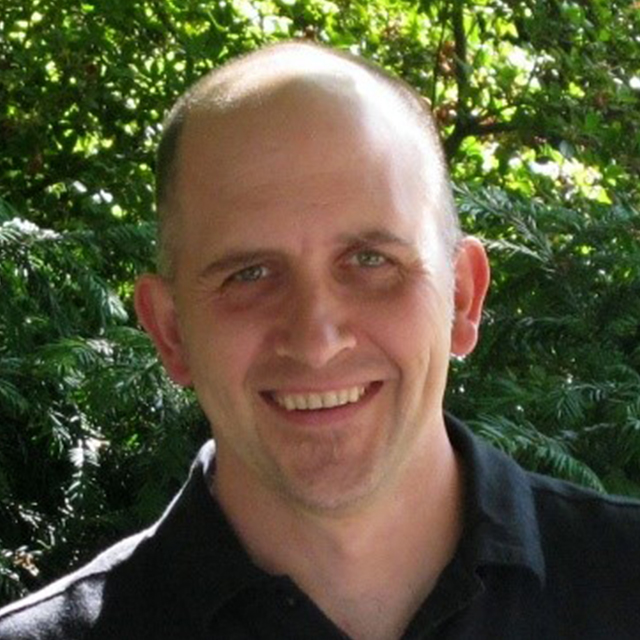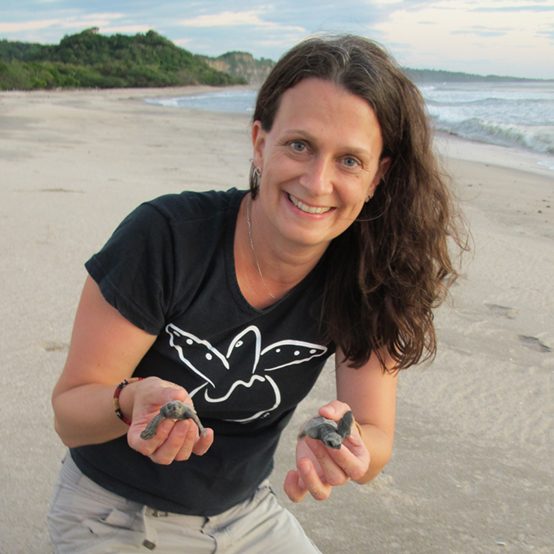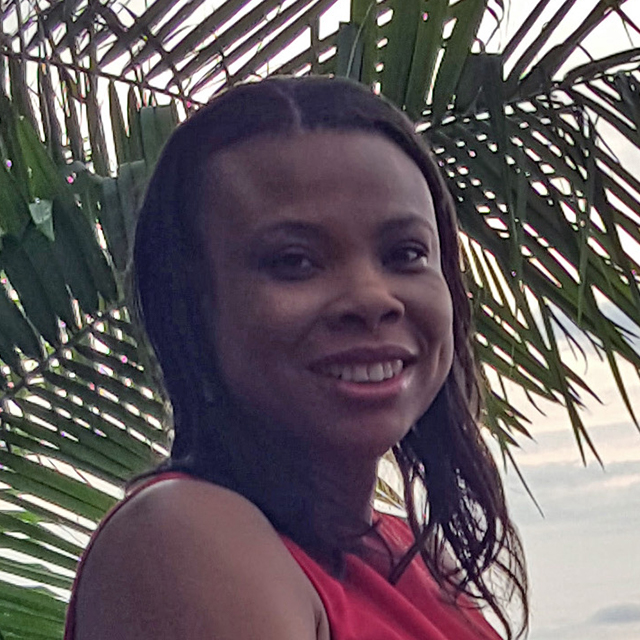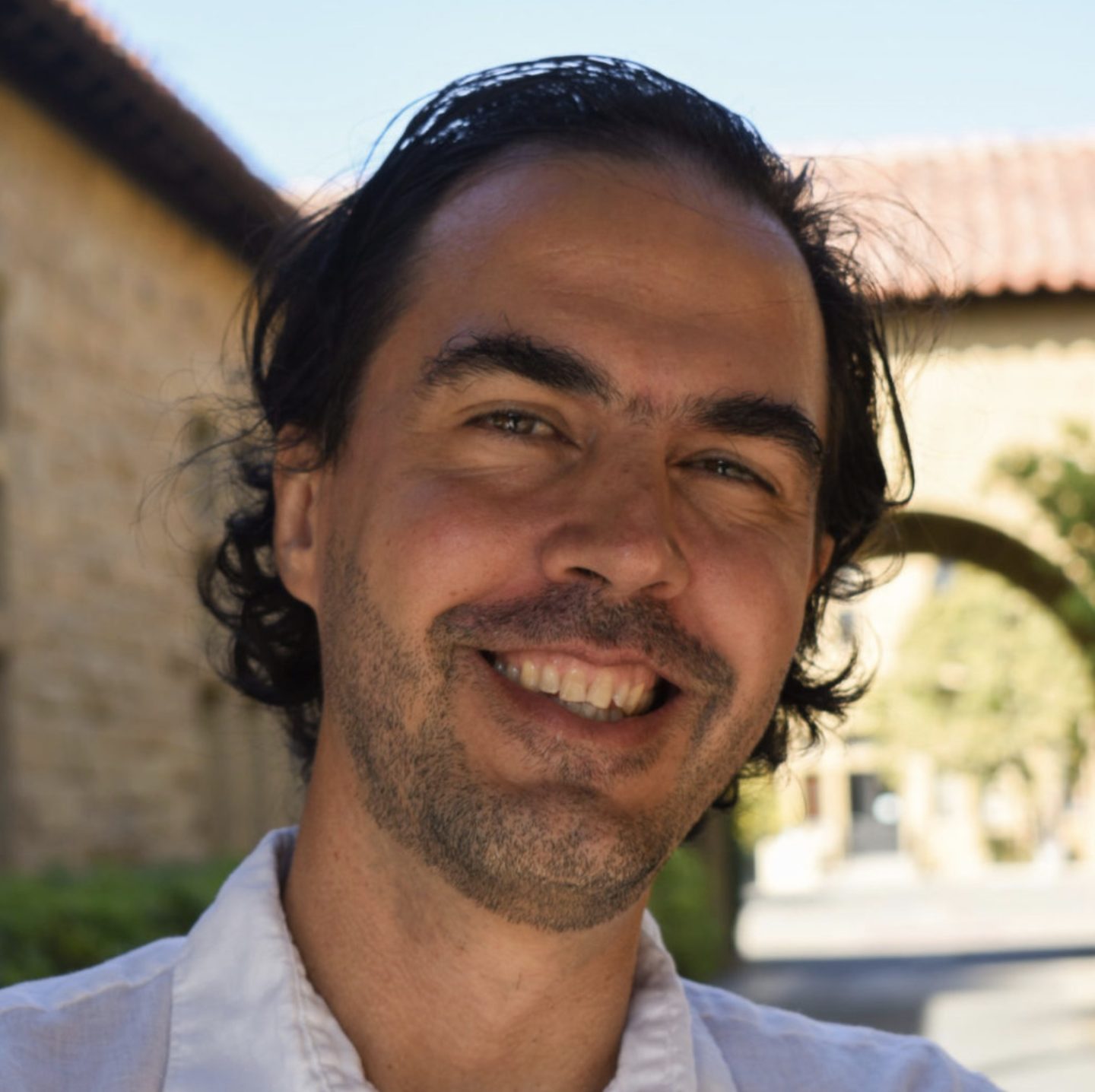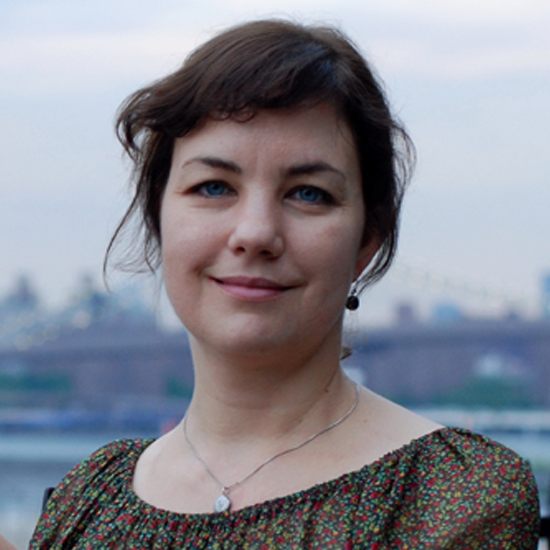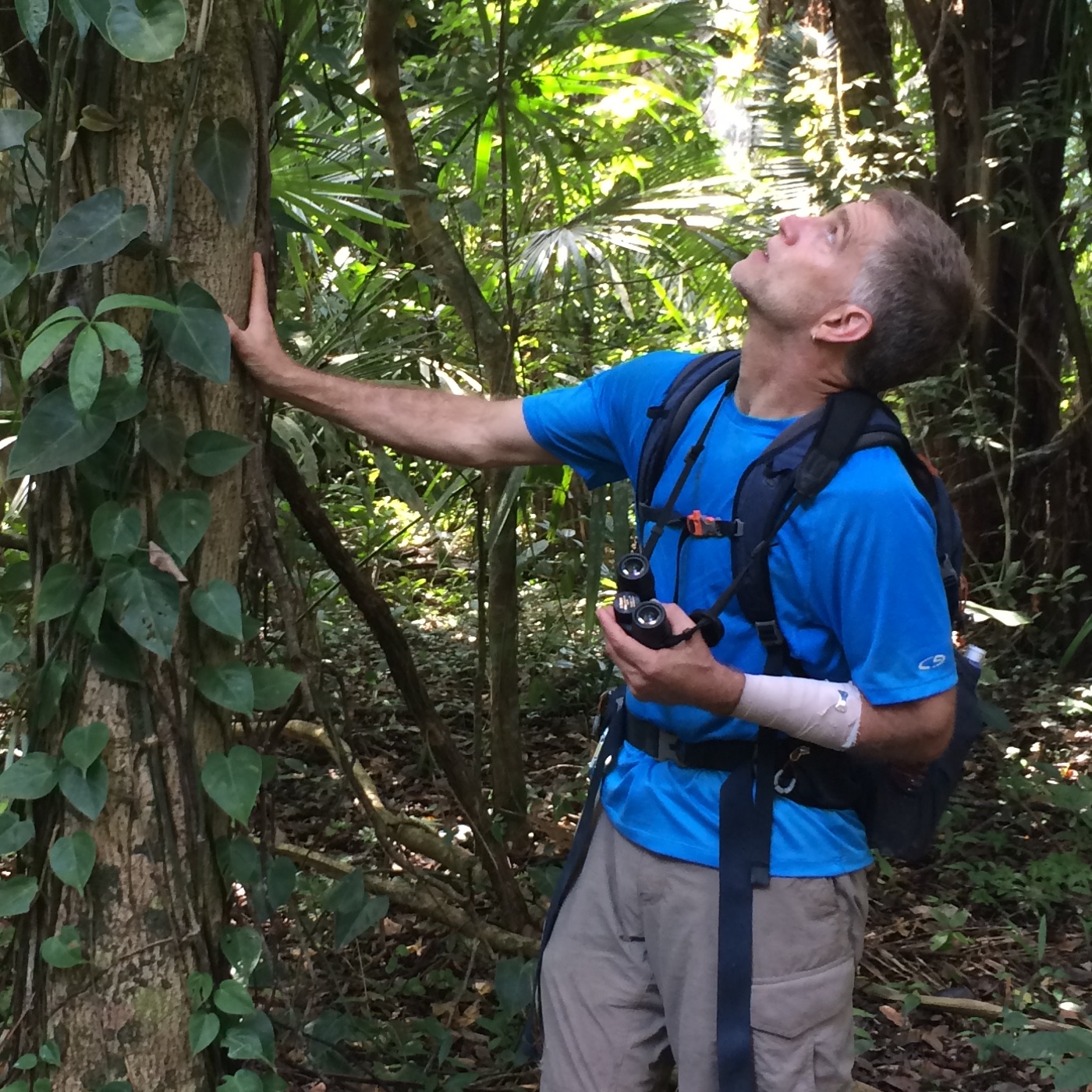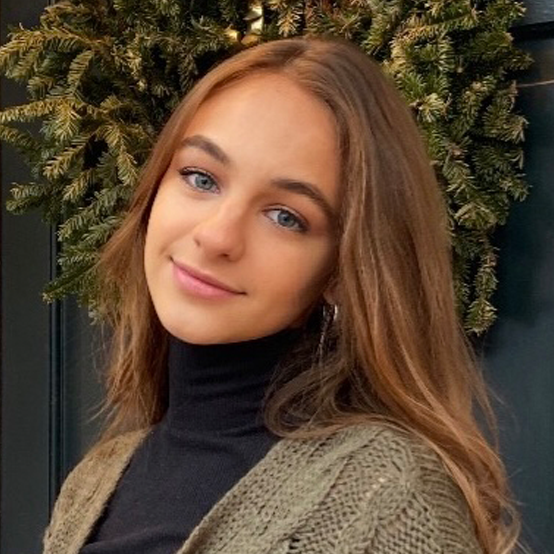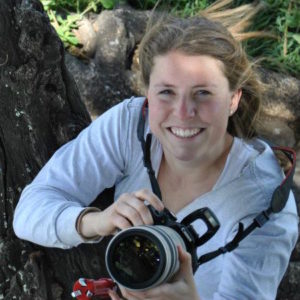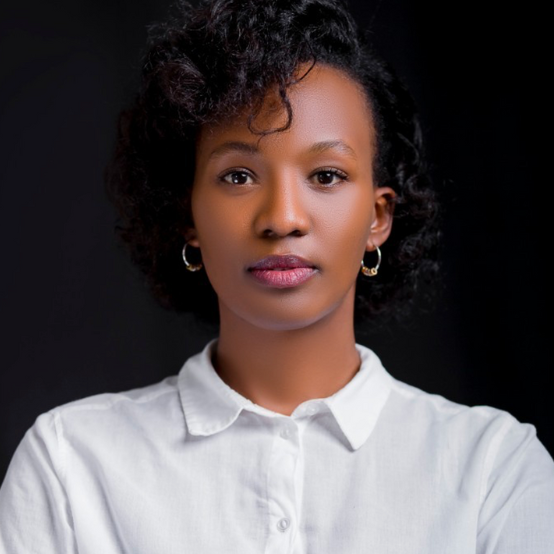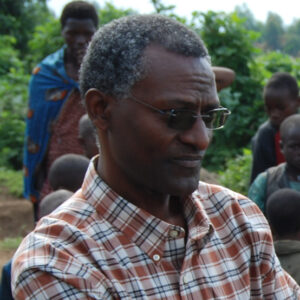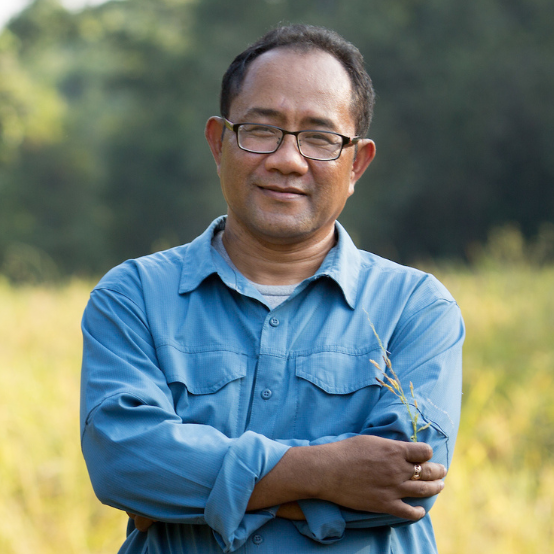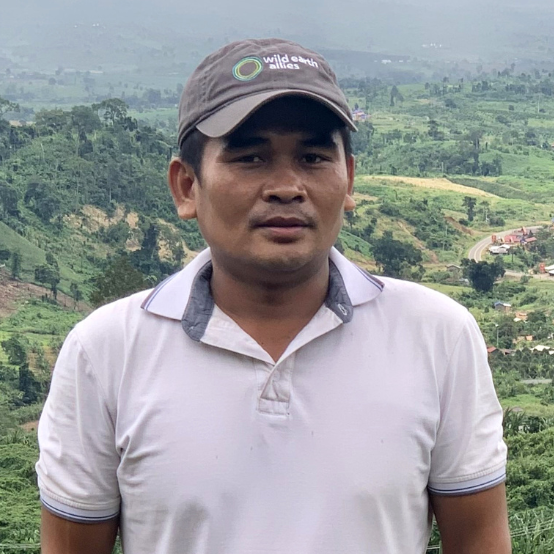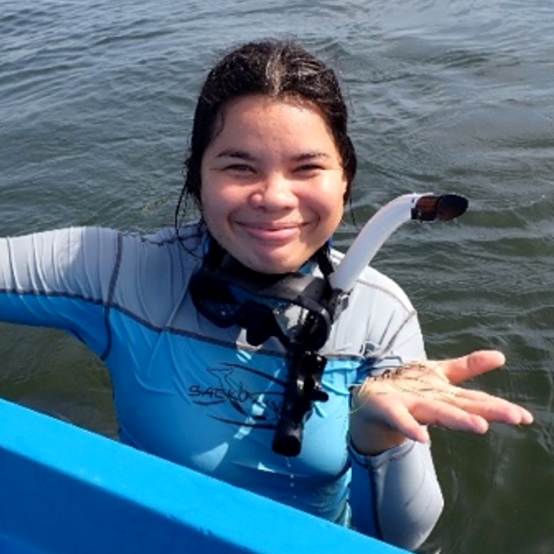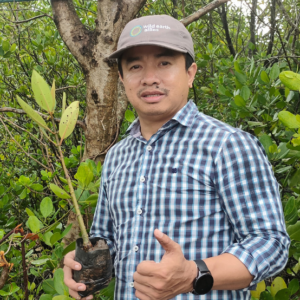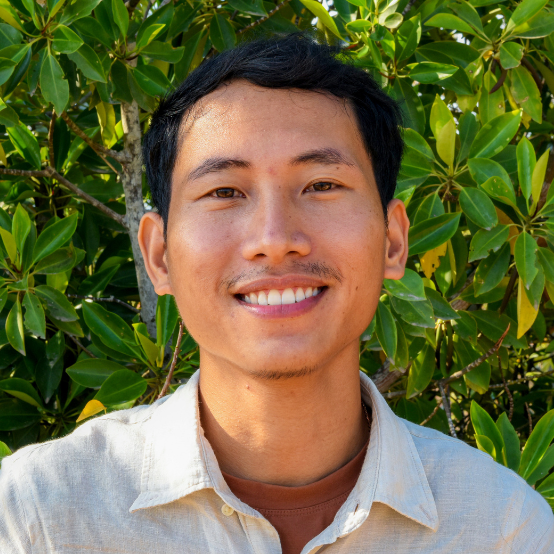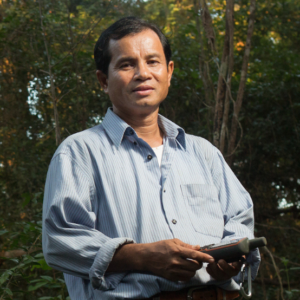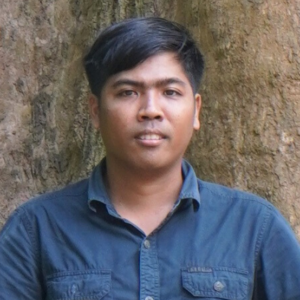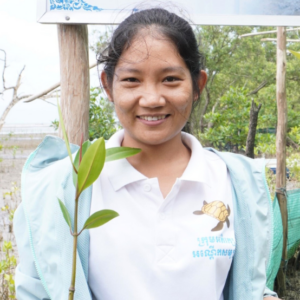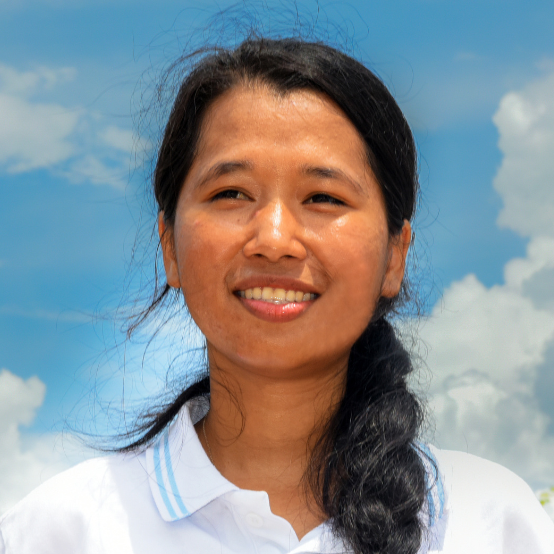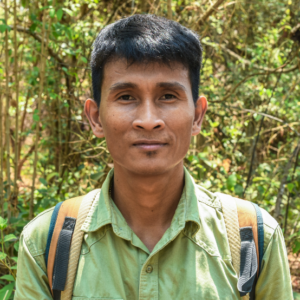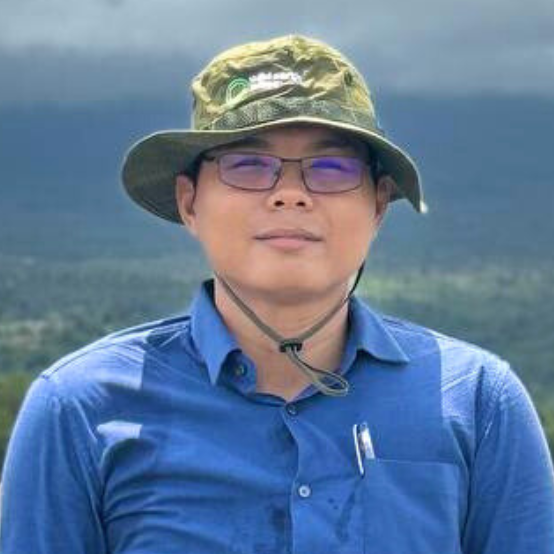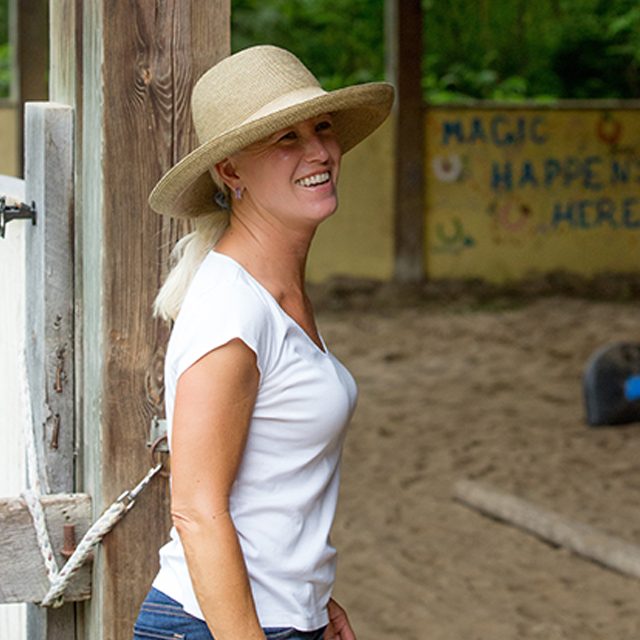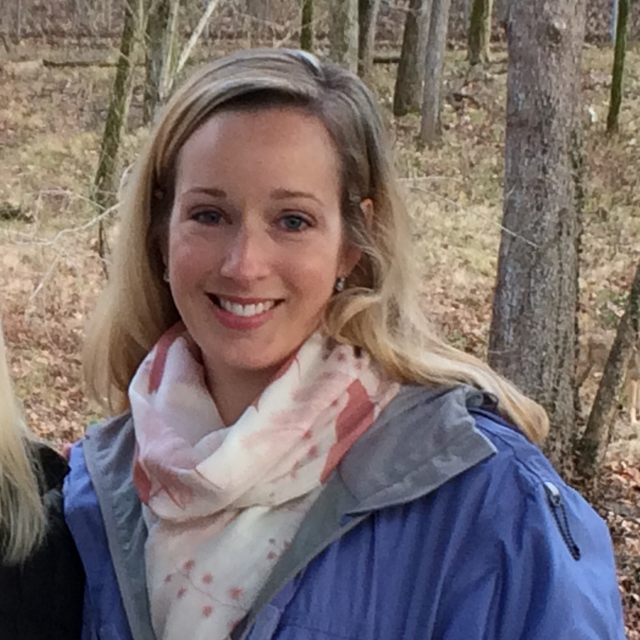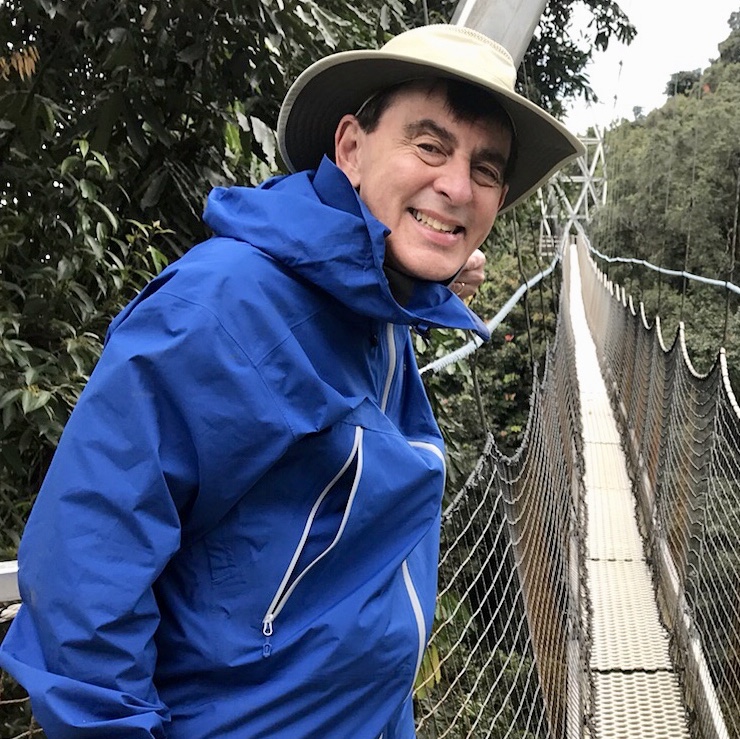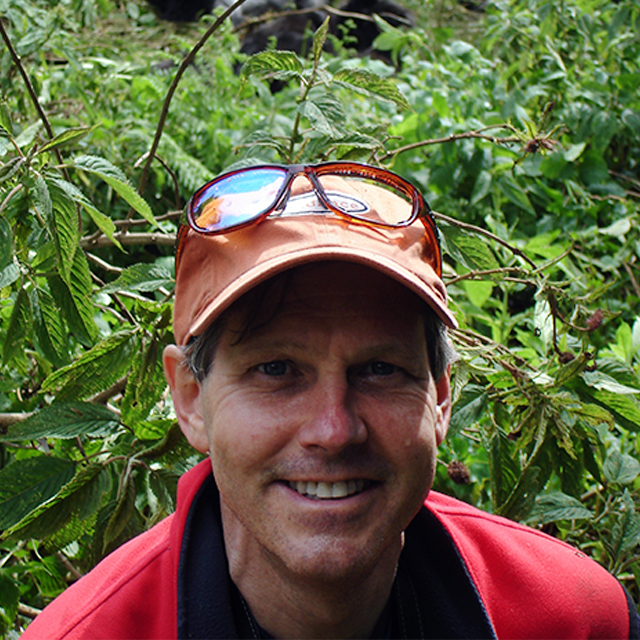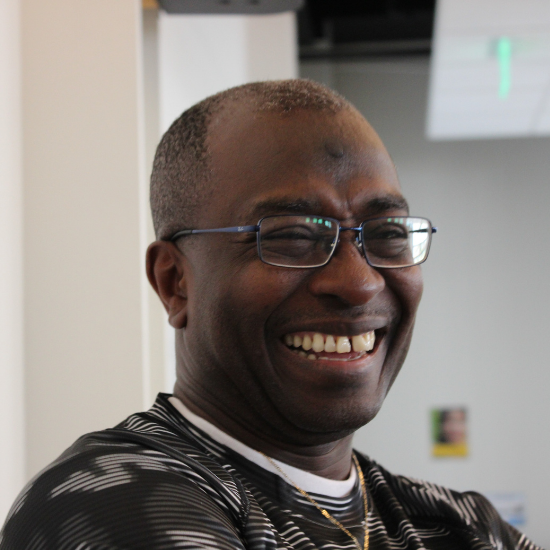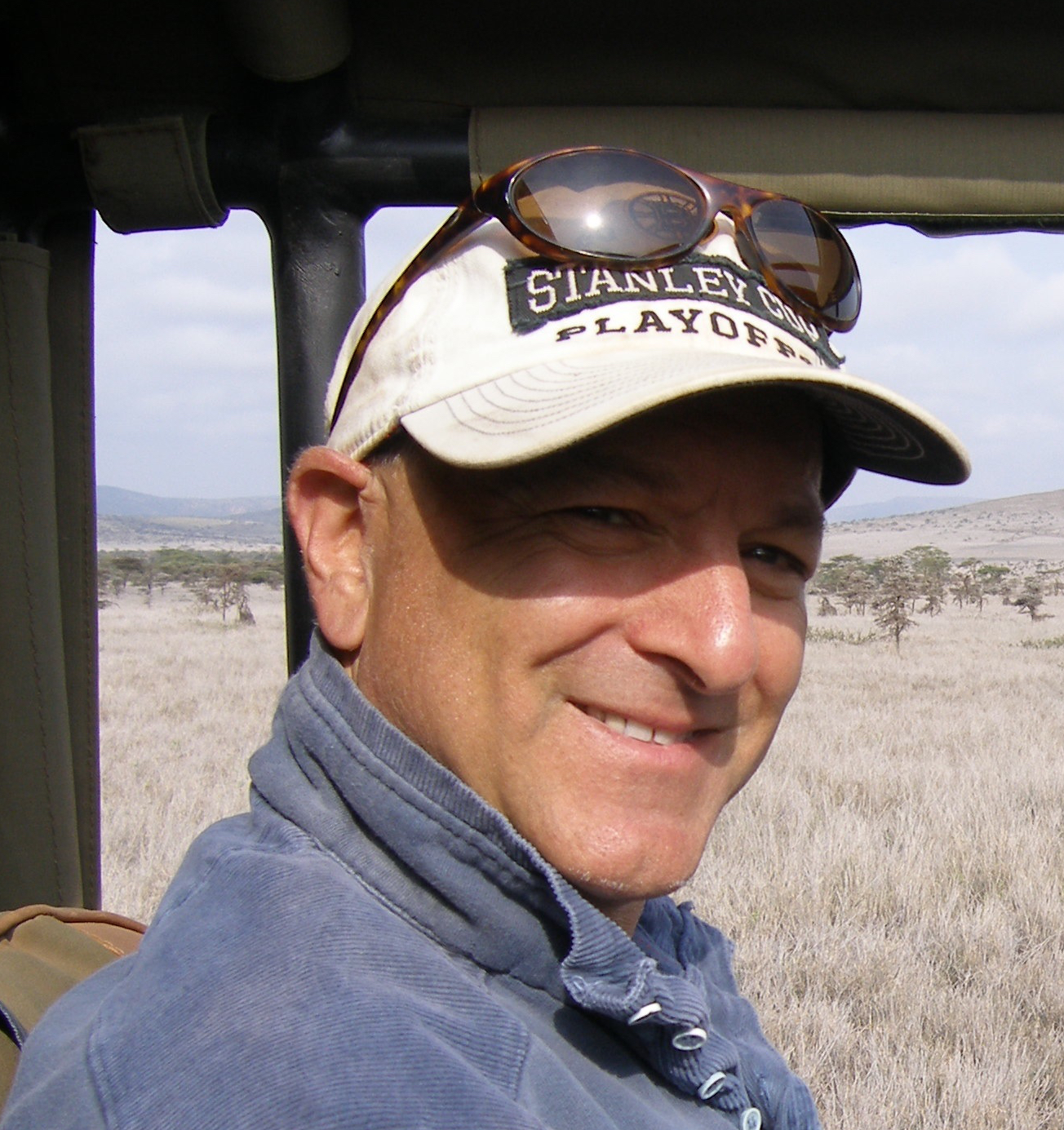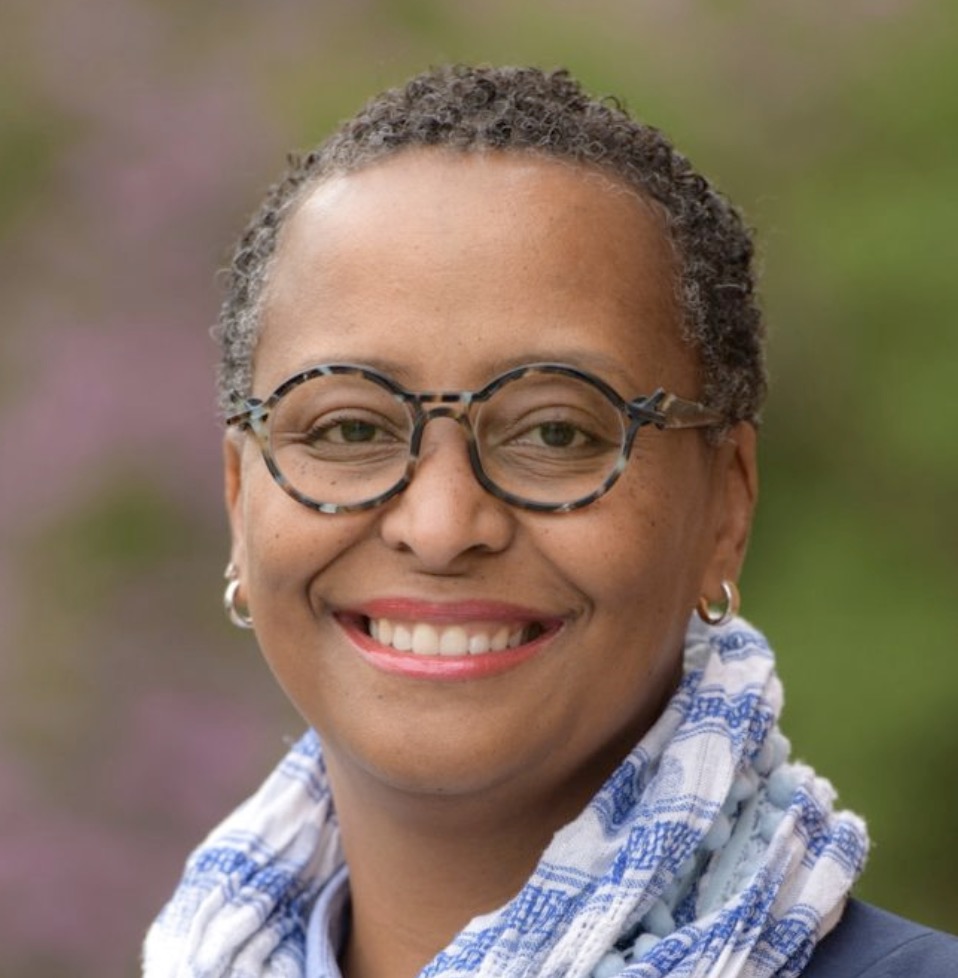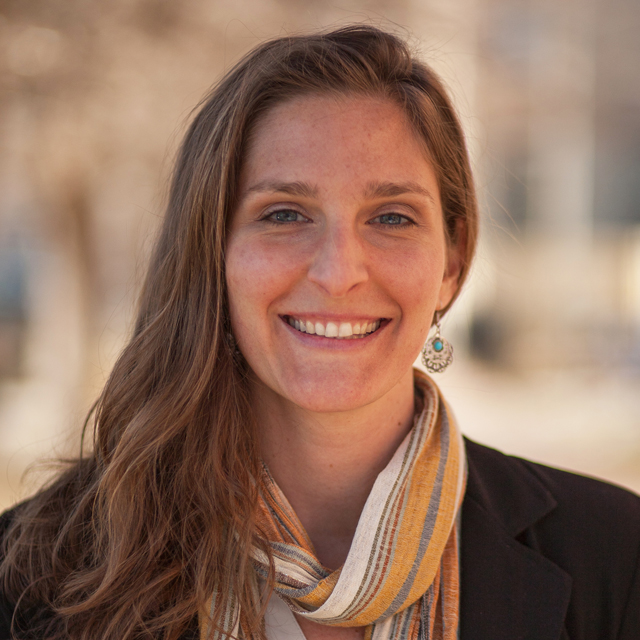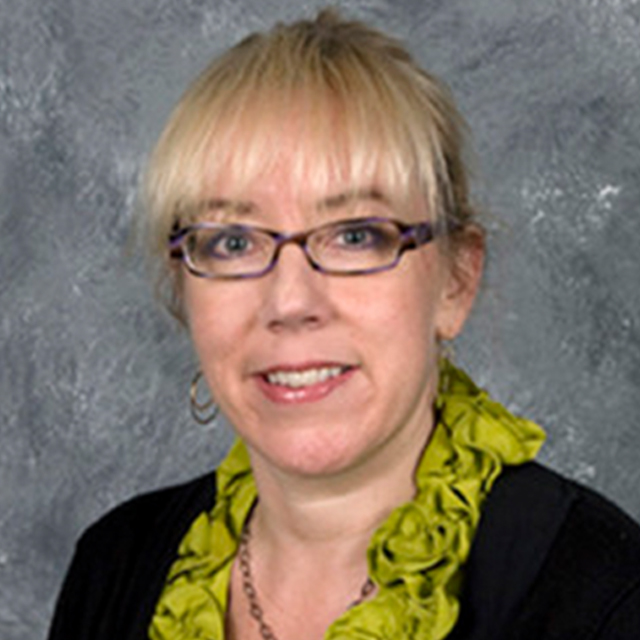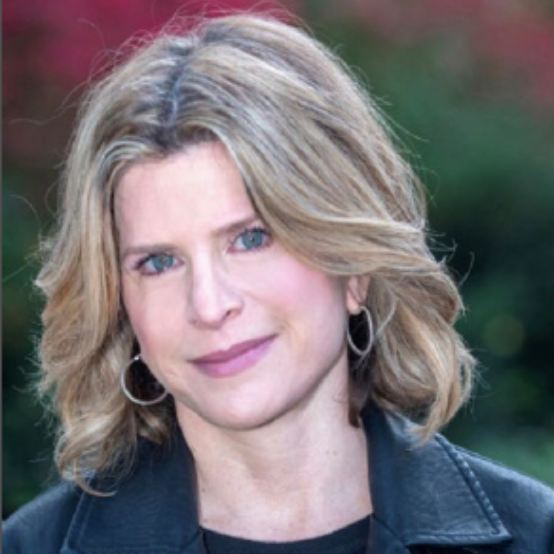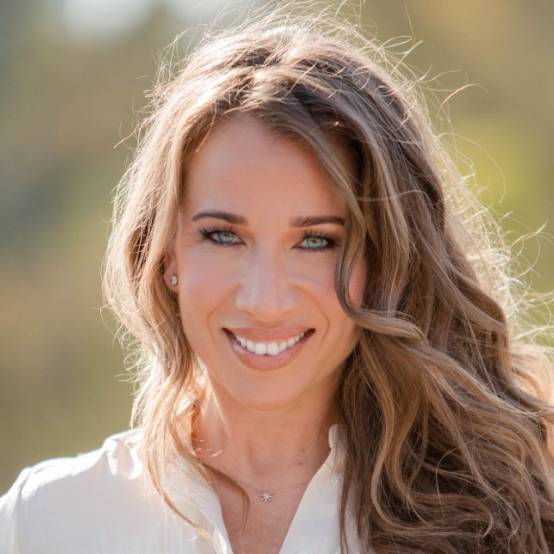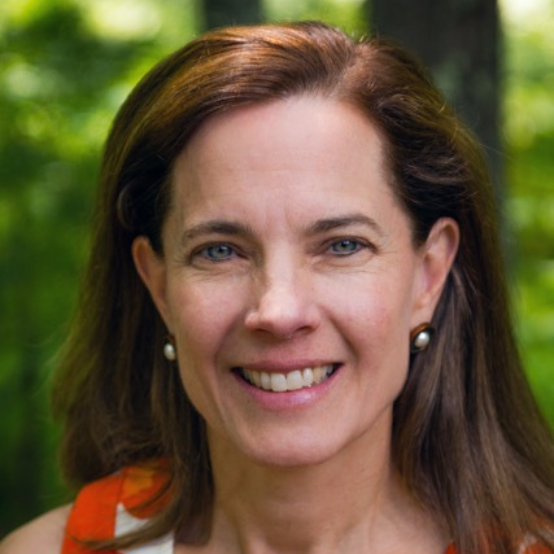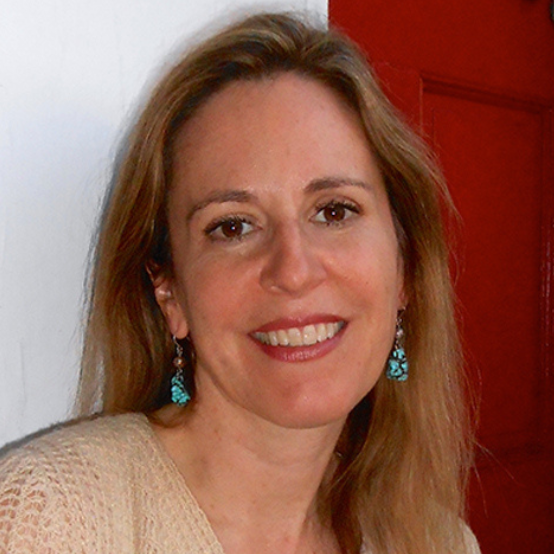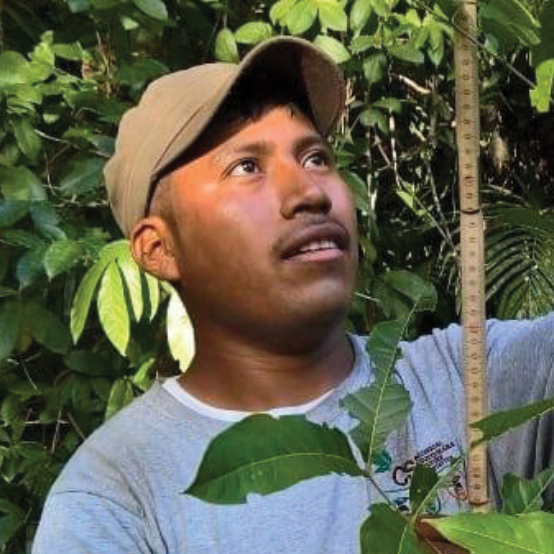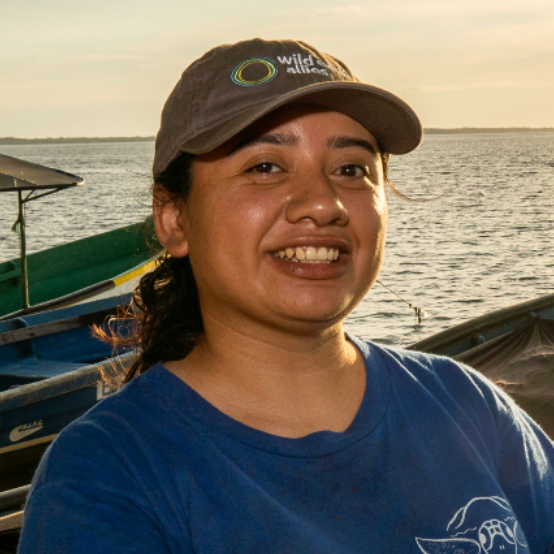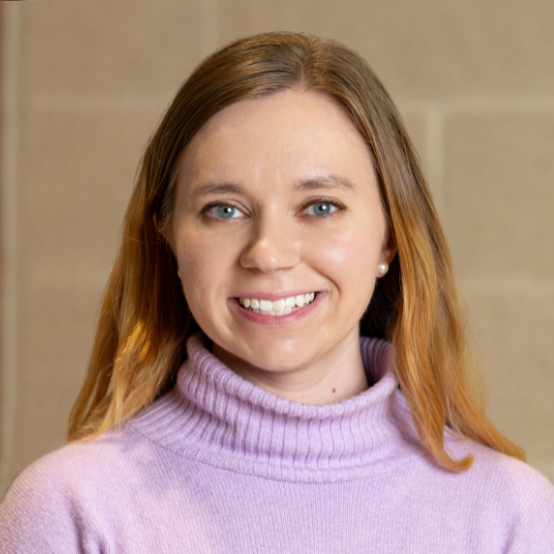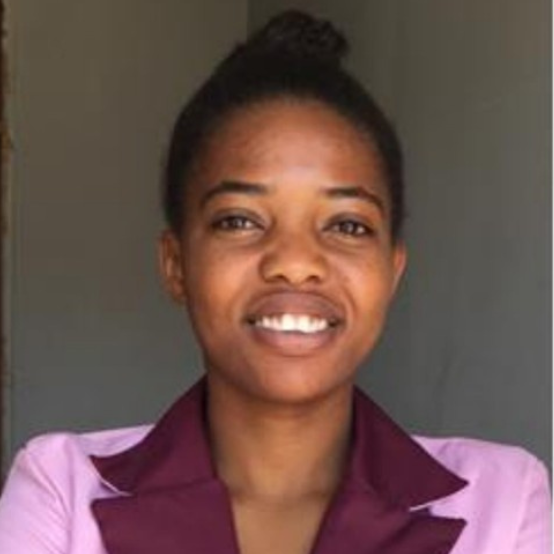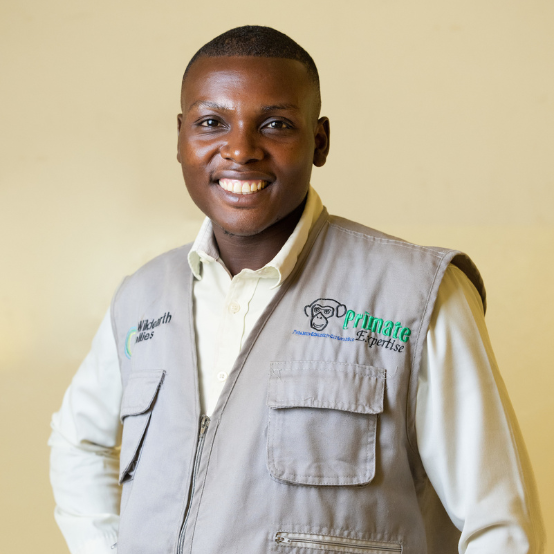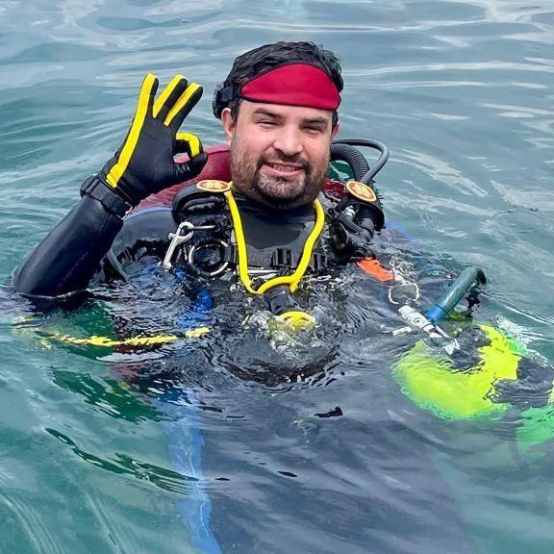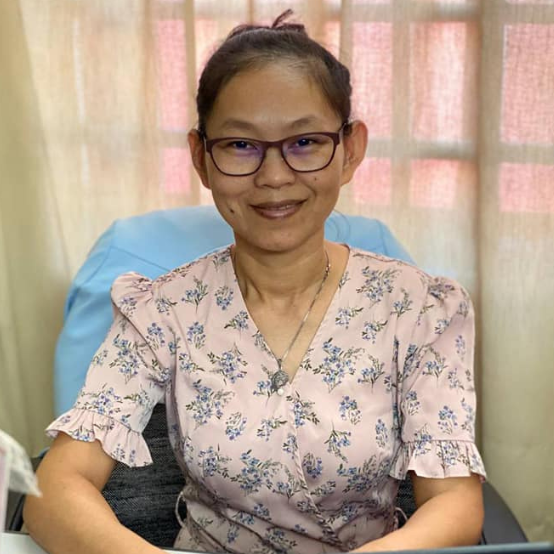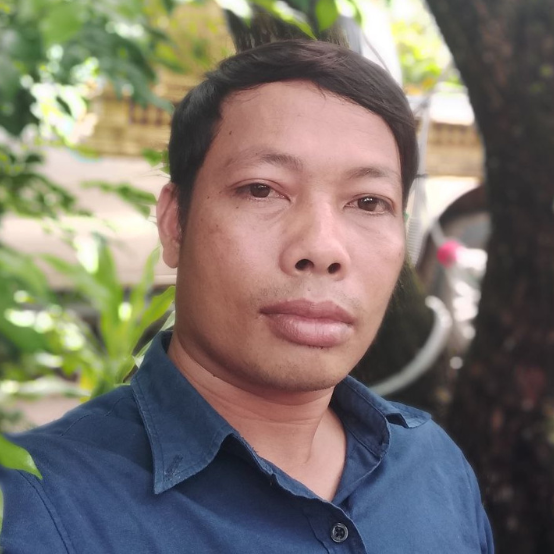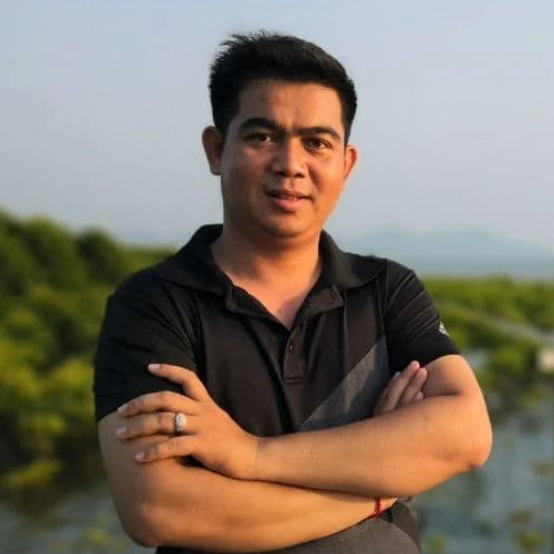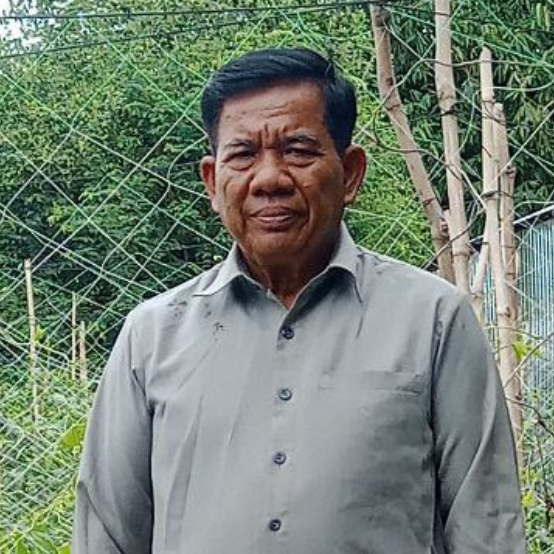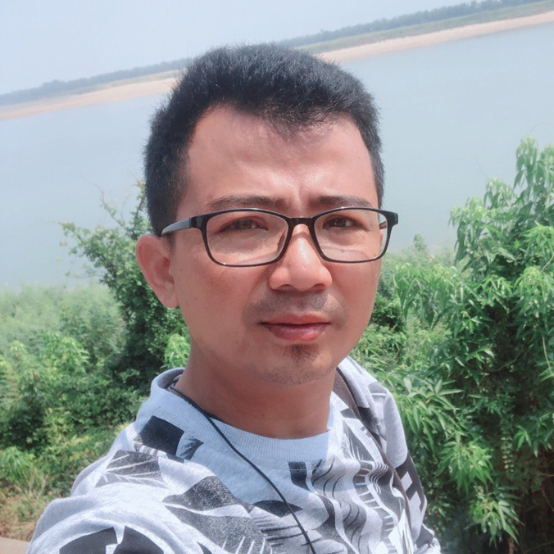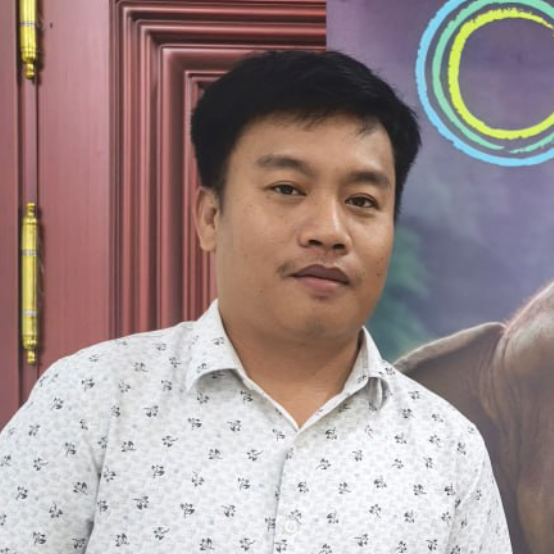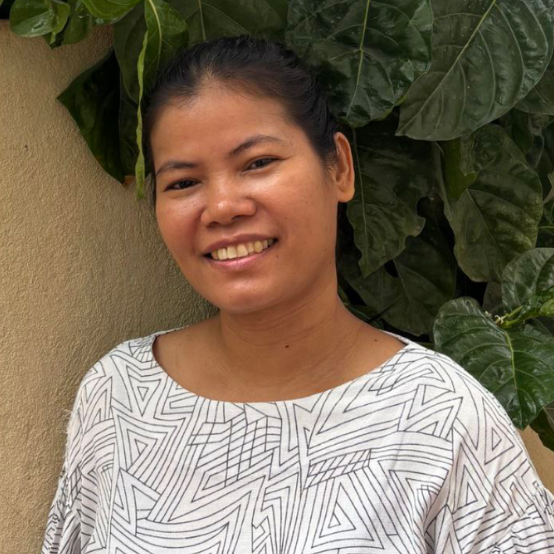In 2018, Wild Earth Allies joined forces with the women-led cooperative Imbereheza Gahunga under the guidance of our long-time Conservation Advisor, Eugène Rutagarama. This community-based collaboration builds on our decades-long history of gorilla conservation while meeting the essential human need for water.
In the Kinyarwanda language, “imbereheza” means “better future” — a reality that is taking shape for people and nature in the foothills of Rwanda’s Volcanoes National Park.
In this area of rich biodiversity, communities share vital natural resources with endangered mountain gorillas and other wildlife. Many women and children walk up to three hours daily to collect water in the park. This burden takes time away from essential activities like farming and education and puts pressure on gorillas and their forest habitat.
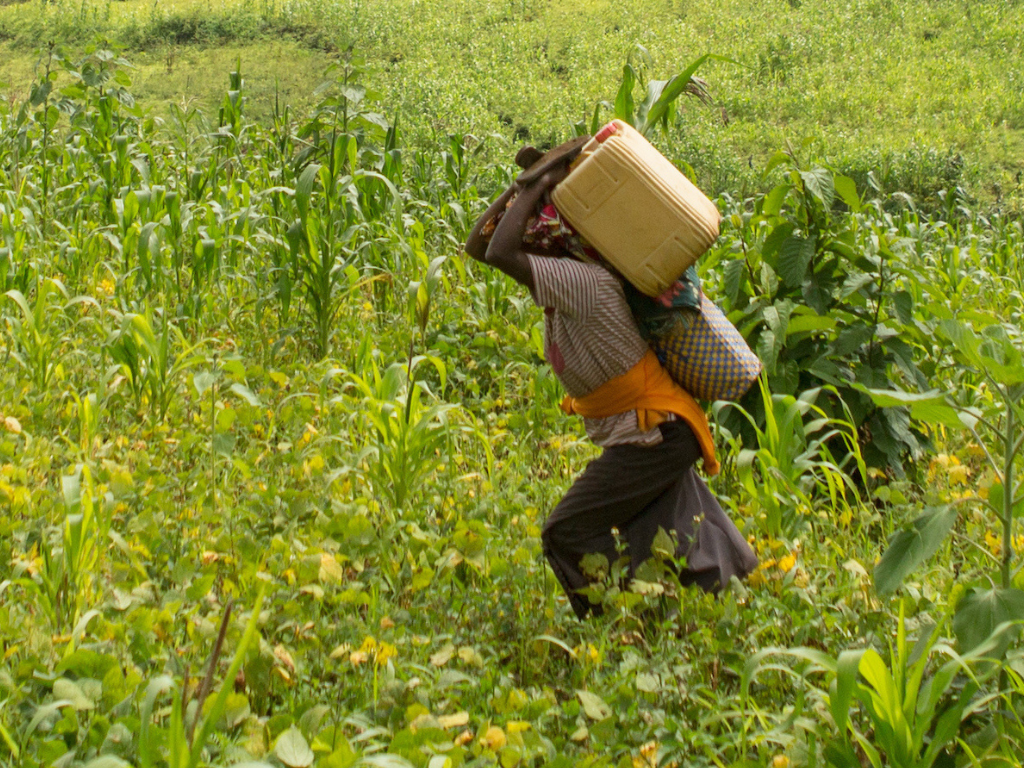
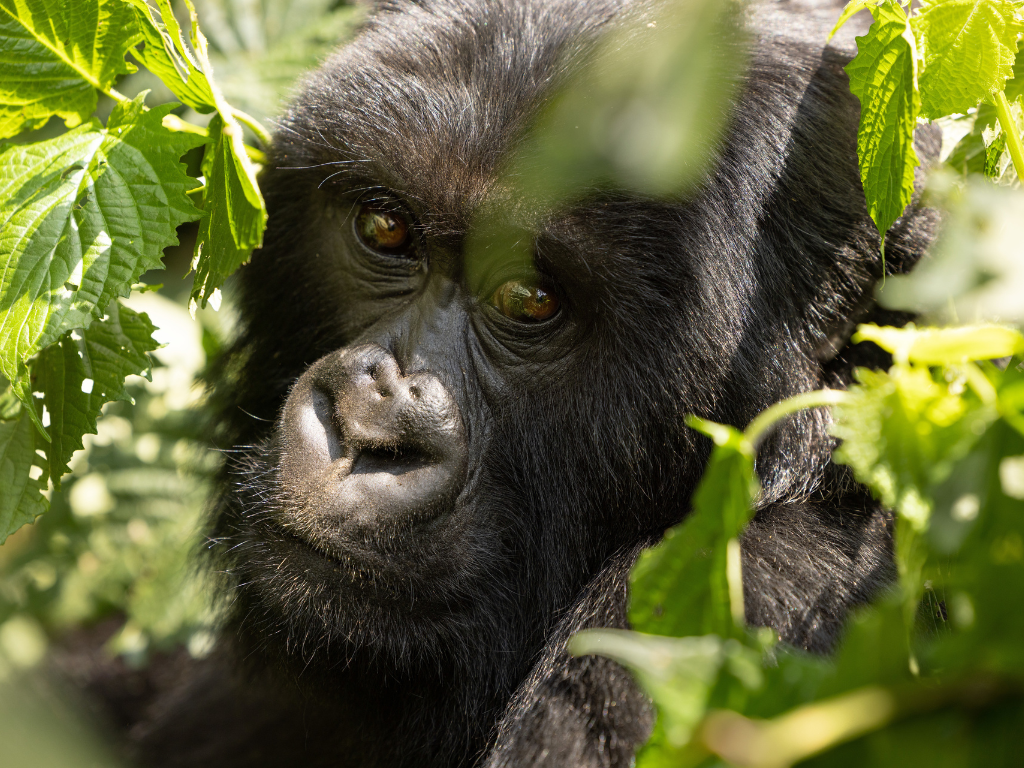
1) A woman fetches water. The average weight of a standard five-pound jerry can when full is 40 pounds. 2) A juvenile mountain gorilla peers through the foliage in Volcanoes National Park. (Photos by Allison Shelley)
Wild Earth Allies teams up with the women-led cooperative Imbereheza Gahunga to implement a win-win solution for people and nature: household rainwater tanks.
In celebration of World Water Day, we are proud to share that we have installed 509 household water tanks with Imbereheza Gahunga — a major milestone in our plan to build 1,000 tanks together. The water tanks improve the well-being of 3,500+ people and protect mountain gorilla habitat from human activity.
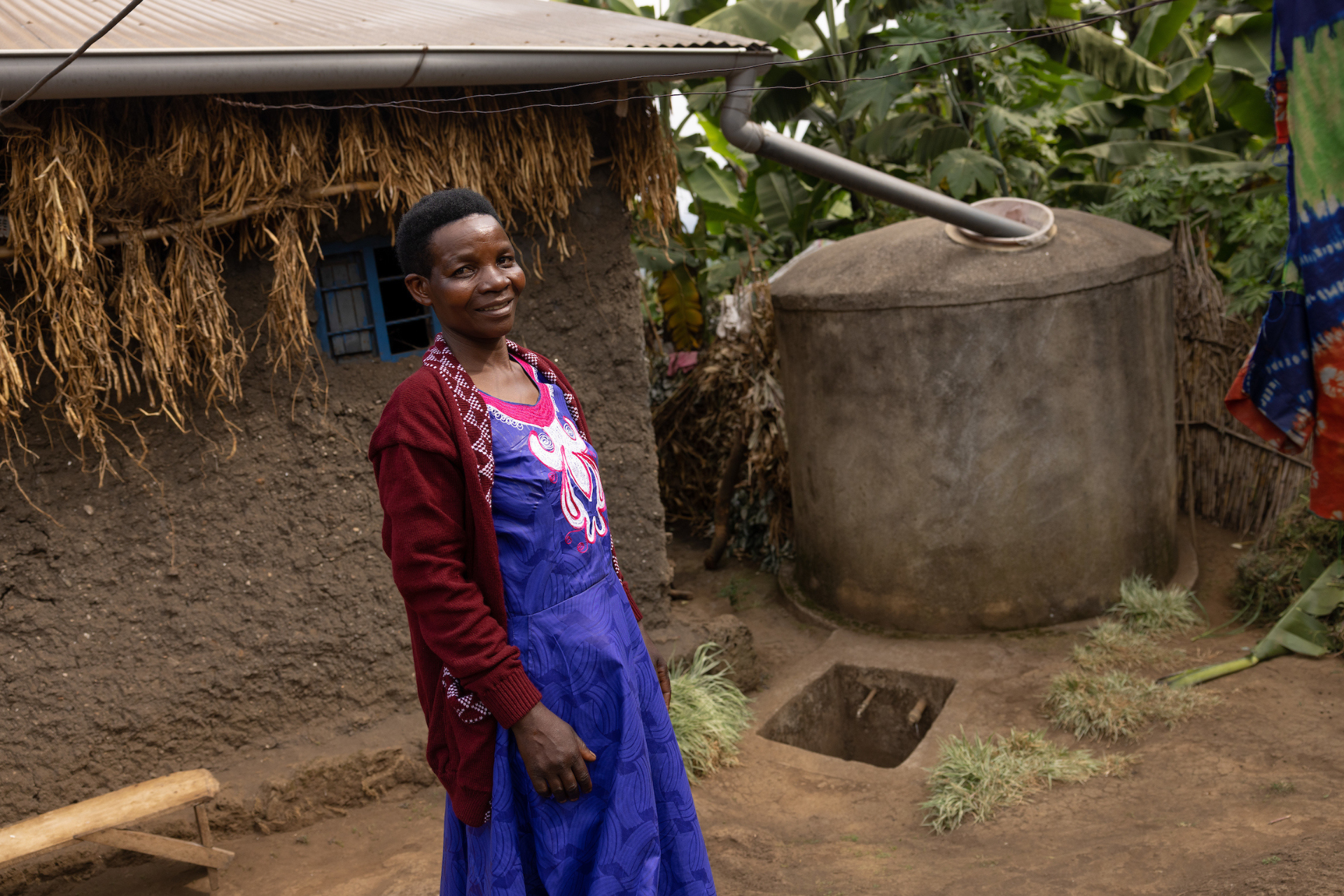
Cooperative member Nsabimana Annonciata stands before her household rainwater tank. (Photo by Allison Shelley)
“Since the cooperative began, we are no longer isolated women in our respective homes. Instead, we have come together to work for our common interests and earned the respect of our husbands and the community.”
—Athanasie Mukabizimungu, Founder, Imbereheza Gahunga
A woman-founded, women-led solution
In the community of Gahunga, Athanasie Mukabizimungu once endured the hardship of fetching water miles from her home. Understanding firsthand the urgent need for local water access, she founded Imbereheza Gahunga to champion the construction of water tanks.
Because Rwanda’s women and girls bear most of the burden of water collection, Athanasie knows that water issues are women’s issues. “In our tradition, women are custodians of all tasks related to water use,” she says. “For families without water tanks, women are the ones who spend hours looking for water.”
Under Athanasie’s leadership and with the guidance of our Conservation Advisor, Eugène Rutagarama, the cooperative’s programming reflects community needs and perspectives.
“Since the cooperative began, we are no longer isolated women in our respective homes,” says Athanasie. “We have come together to work for our common interests and earned the respect of our husbands and the community.”
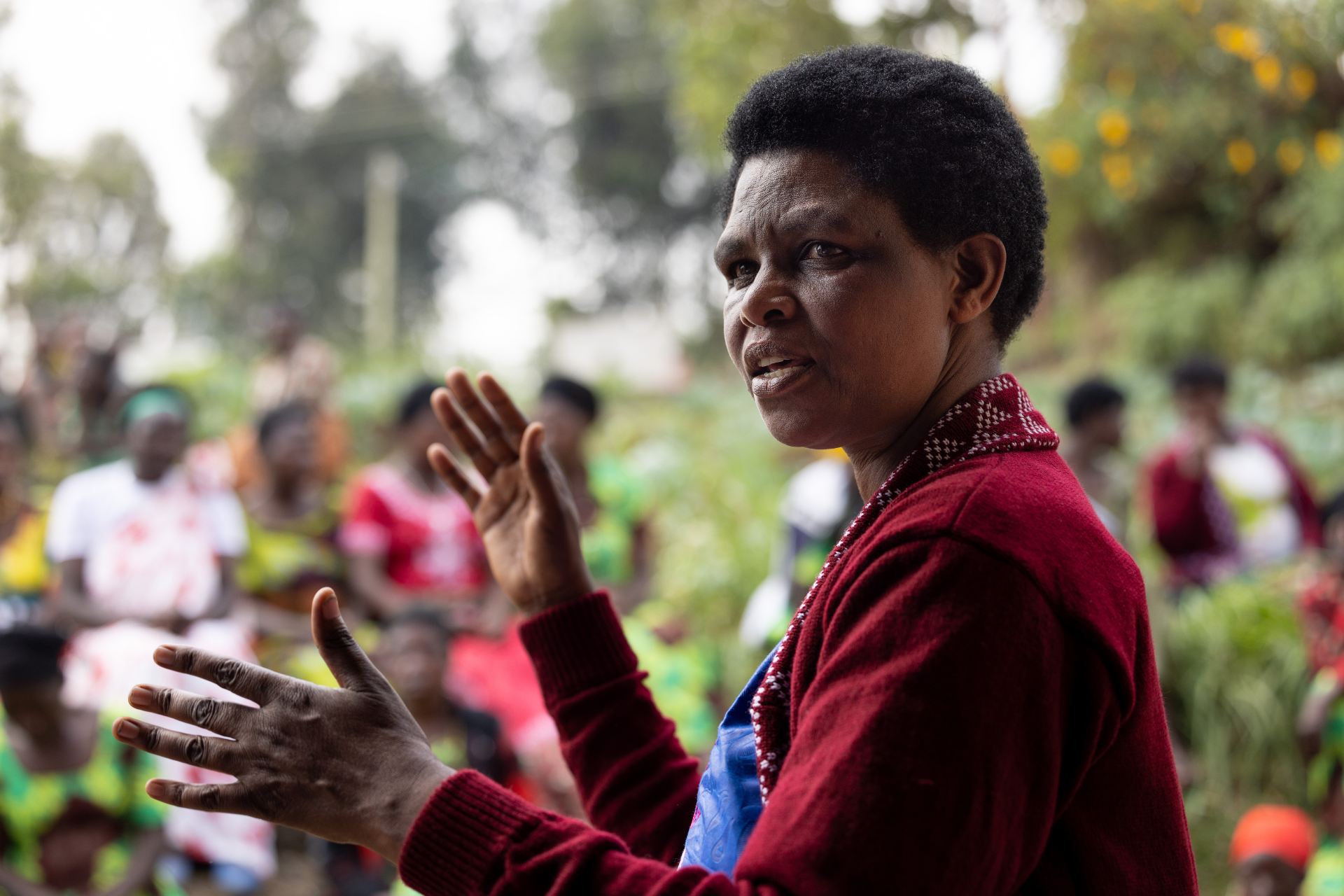
Athanasie Mukabizimungu, founder and chairperson of the women-led cooperative Imbereheza Gahunga, speaks during a meeting at the group’s headquarters building in Gahunga, Rwanda. (Photo by Allison Shelley)
Imbereheza Gahunga members gain valuable skills by constructing the water tanks themselves. The cooperative prioritizes water tanks for community members who are most in need. The highest-served recipients include the elderly, extremely low-income or disabled families, and those living closest to the park who are most likely to use it for water collection.
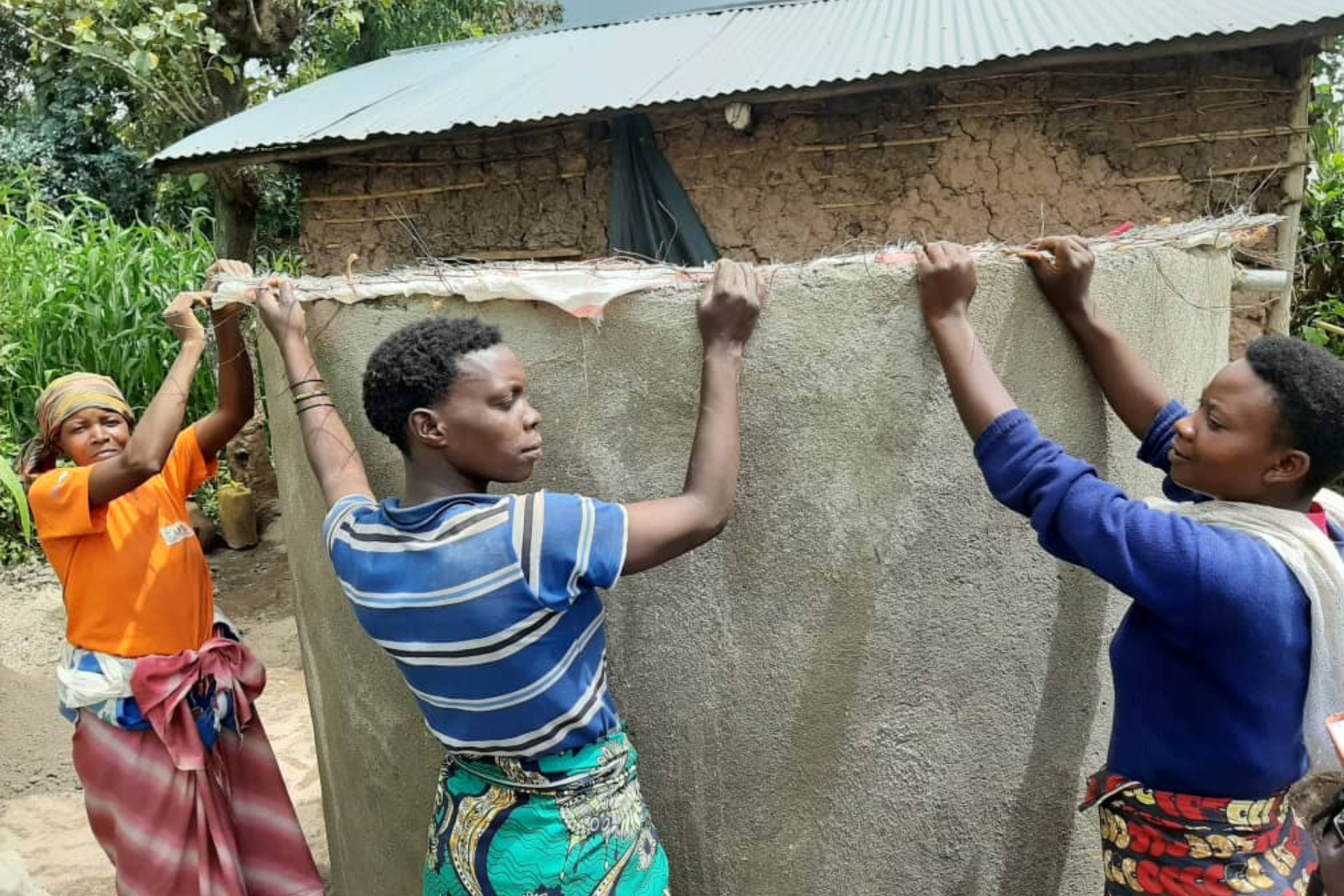
Imbereheza Gahunga members build a household water tank.
“Since receiving our water tank, life has changed from bad to good. We have no stress anymore from going to bed without eating, and my children have enough time to do their homework and review their lessons.”
—Honorine Uwizeyimana, Water Tank Recipient
Water access means health and opportunity
Household water tanks create many benefits for families and transform the lives of women and girls. Our Rwandan Conservation Fellow, Florence Mukantabana, interviews all water tank recipients to document their stories and outcomes. The positive impacts Florence has recorded include:
- Improved health and hygiene
- Educational opportunities for children who used to miss school to collect water
- Recovered time for household and agricultural activities
- Reduced stress and hunger
- Increased water for livestock
- Improved personal safety for women and children
- Greater income from increased crop yields
One of the recipients, Honorine Uwizeyimana, told Florence, “Since receiving our water tank, life has changed from bad to good. We have no stress anymore from going to bed without eating, and my children have enough time to do their homework and review their lessons.”
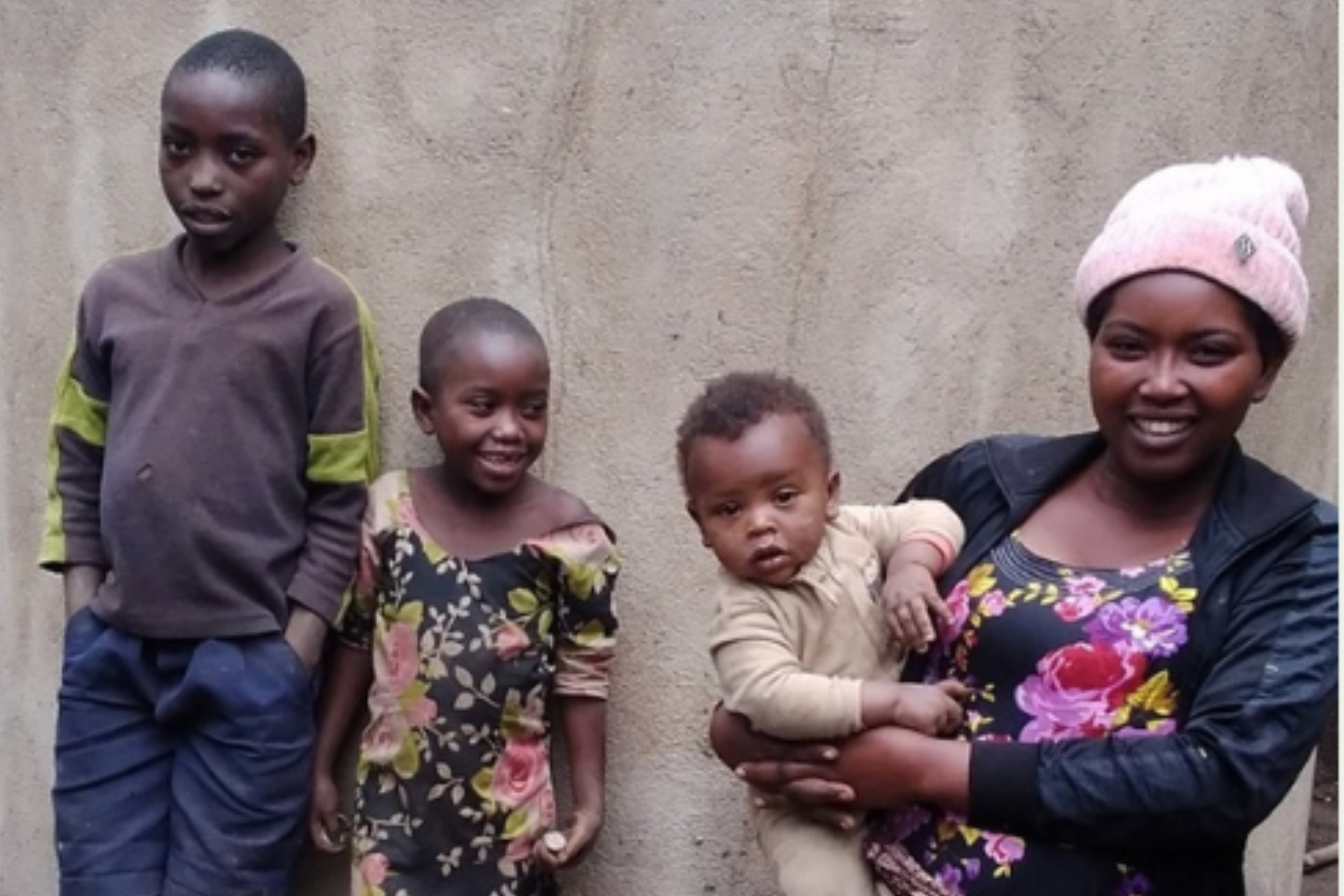
Honorine Uwizeyimana and her children in front of their household water tank. (Photo by Florence Mukantabana)
Protecting mountain gorillas and their habitat
Mountain gorillas are listed as an endangered species by the IUCN Red List. The gorillas in Volcanoes National Park are part of the transboundary Virunga Mountain population, which spans Rwanda, Uganda, and the DRC. Together with those in Uganda’s Bwindi Impenetrable National Park, the total mountain gorilla population is estimated at 1,004 individuals. With fewer people now entering the park to gather water, benefits to the gorillas include:
- Lowered risk of disease transmission
- Reduced stress on gorilla groups
- Improved habitat quality
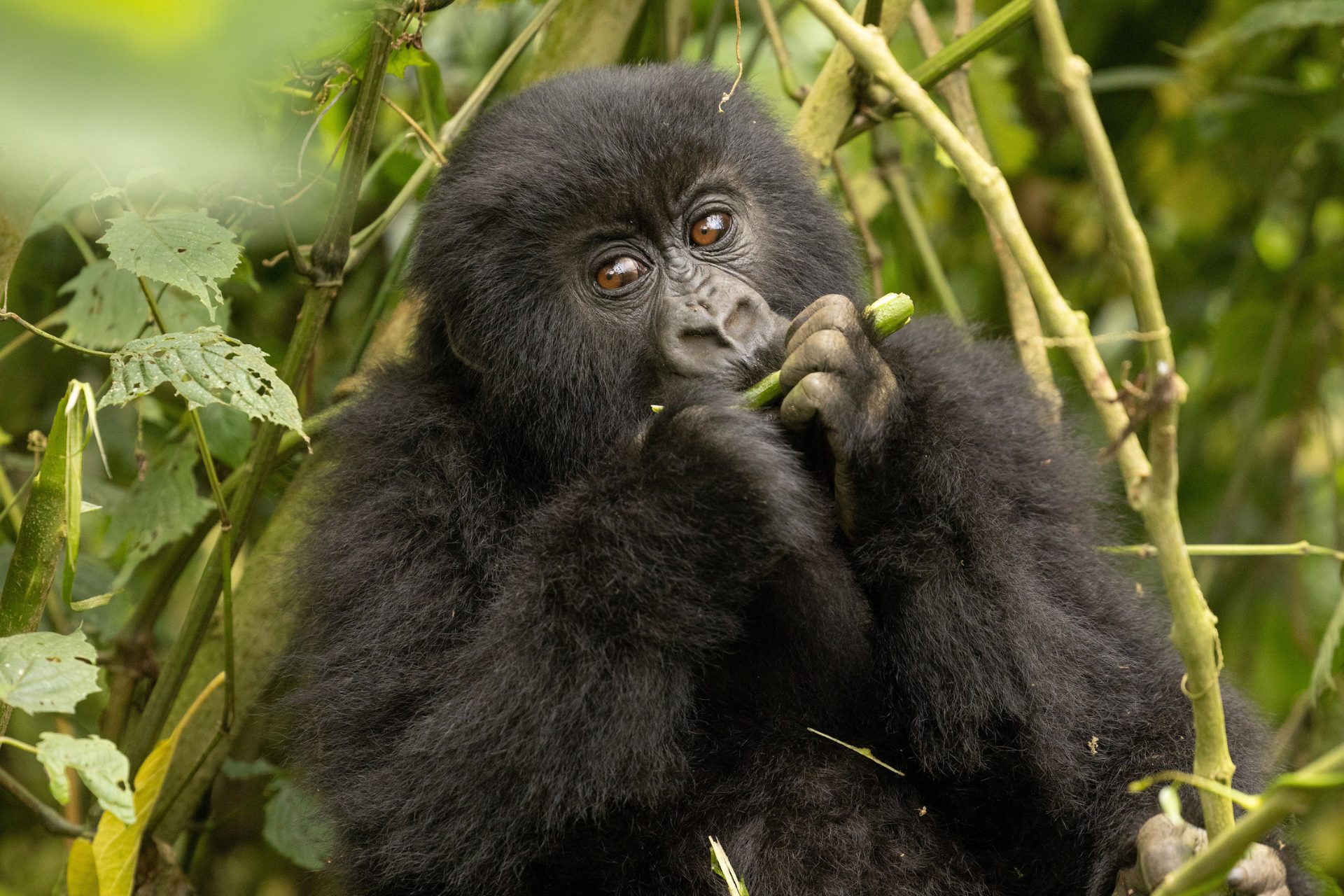
The Kwitonda gorilla group in Volcanoes National Park currently consists of 17 members, including Kungahala, a juvenile. (Photo by Allison Shelley)
Scaling women’s impact
As the cooperative grows, it spearheads new initiatives and opportunities for women. In 2022, we launched a revolving loan fund to further improve the well-being and livelihoods of families near the park. The pilot phase provided 50 small loans to cooperative members to help them rent land and buy seeds to grow crops for food and income. The loan repayment rate was a remarkable 100 percent within one year. Loan recipients report profits, improved health and family well-being, and a reduced need for resource collection in the park.
We look forward to growing our partnership with Imbereheza Gahunga to unlock even more opportunities for women and girls.
In the words of Athanasie, “Wild Earth Allies has achieved more with Imbereheza Gahunga in four years than any other partner since our founding in 2008. Their substantive and flexible support irreversibly benefits our lives and the conservation of our cousins — mountain gorillas.”
Imbereheza Gahunga’s high-impact and culturally aligned model is both scalable and replicable. Our collaboration is part of Wild Earth Allies’ larger commitment to amplifying women’s leadership globally. We know that when we invest in women, we benefit communities, wildlife, and habitats.
Please consider joining our efforts by making a gift today.

